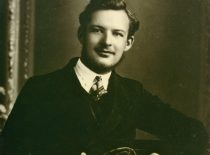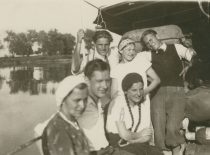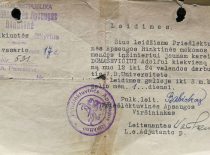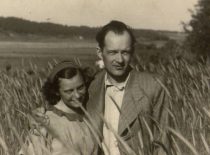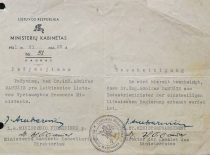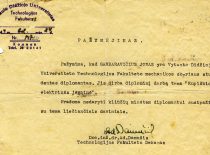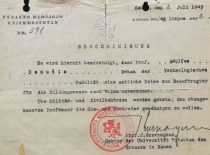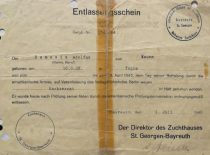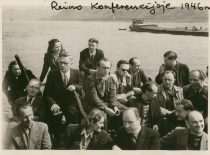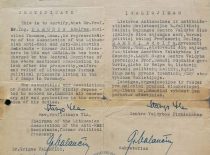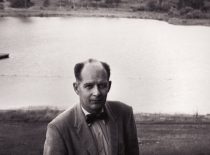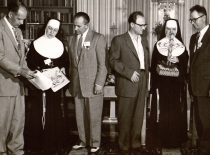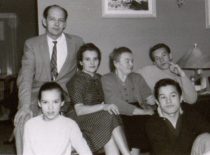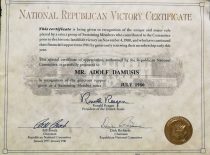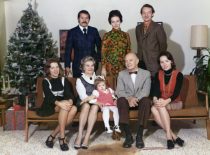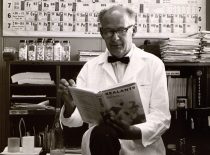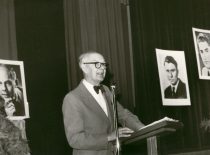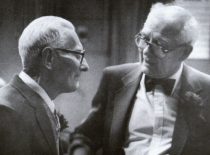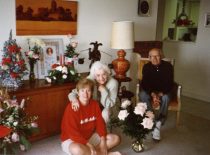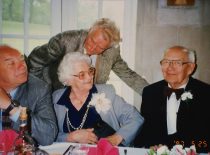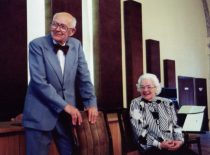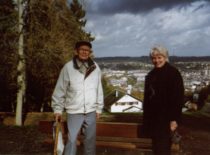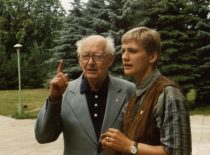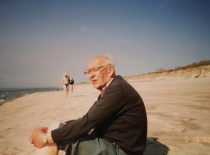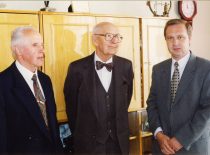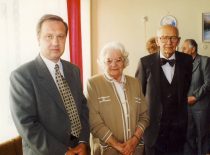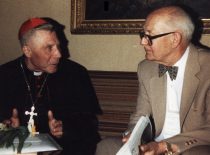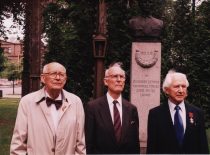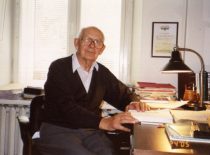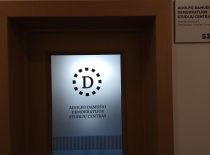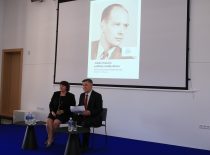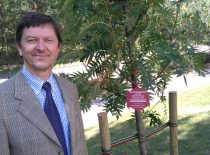Life goal – service to the nation. 110th anniversary of Adolfas Damušis
16 June marks 110 anniversary of the birth of Lithuanian scientist, chemist, Minister of Industry of the Government of Lithuania, participant of anti-Nazi and anti-Soviet resistance Adolfas Damušis (1908–2003). On this occasion, KTU Museum prepared a virtual exhibition using the documents and photographs from A. Damušis family archive, funds of KTU Museum, chronicle of KTU Faculty of Chemical Technology and Adolfas Damušis Democracy Studies Centre.
After graduation from Panevėžys Gymnasium in 1928, A. Damušis was admitted to the Technical Faculty of Vytautas Magnus University (VDU). During studies, he was actively involved in the activities of the Ateitis Association; he was one of the founders of the corporation “Grandis”. He suffered the consequences of his activities several times: he was imprisoned at Varniai concentration camp for four months in 1931, exiled to his birthplace by the nationalists for several months in 1933. Professor Pranas Jodelė encouraged A. Damušis’ interest in the possibilities of cement production in Lithuania. During the summers of 1936-1940, A. Damušis was examining chalk and milestone beds near Kaunas, in the regions of Papilė-Akmenė and Karpėnai-Vegėsiai and analysed these materials in the laboratories during winters. He was visiting and learning in cement factories of Germany, Czechoslovakia and Finland in 1937-1938. He defended his dissertation “The influence of aluminium iron fumes to the shrinkage of Portland cement” on 4 March 1940. He prepared a project for the cement factory in Skirsnemunė in 1939; it was used for construction of the first cement factory in Lithuania that began in May 1940, but was stopped by the occupation. Cement factory was opened in Naujoji Akmenė only in 1952. KTU prof. Raimundas Šiaučiūnas always emphasised that “to this day, cement is produced in Akmenė using the formula of A. Damušis“. Damušis was the Head of VDU Department of Inorganic Chemistry from 1940. He became the commander of the headquarters of the Lithuanian Activist Front, one of the organisers and leaders of June Uprising in Kaunas, Minister of Industry of the Provisional Government of Lithuania. He actively participated in the anti-Nazi resistance in 1941-1944. He was one of the organisers of the Supreme Committee for the Liberation of Lithuania in 1943, Vice-Chairman in 1943-1944. 1942-1944, Dean of the Faculty of Technology. Was arrested by the Gestapo on 16 June 1944 and imprisoned in Bayreuth, Northern Bavaria, Germany. Was liberated by the American army on 14 April 1945. After his liberation, he found his family and lived in Kempten DP camp and worked as a director of the Lithuanian gymnasium. One of the founders and leaders of the Lithuanian Union of Political Prisoners of Lithuanian Resistance, established in 1945. He moved to the USA in 1947. He worked at the company “Sherwin-Williams” in Cleveland in 1947-1957, and in the chemical company “BASF Wyandotte” in Detroit in 1957-1973. After his retirement at the age of 63, he was invited to University of Detroit. He was professor of this university and Vice-Director of the Polymer Research Institute in 1973-1983. 24 of his inventions are patented in the USA, Canada, England and France. Damušis actively participated in social activities. Commander in Chief of the Ateitis Federation in 1946–1952, chairman of the board in 1957–1964 and 1977–1983. Chairman of the Organisation of the Friends of the Lithuanian Front in 1947–1950 and 1966–1969. Vice-Chairman of the Lithuanian Roman Catholic Federation of America in 1948–1954, Chairman in 1954–1955. At the initiative of the Lithuanian Roman Catholic Federation of America 20 ha of land was bought in 1955; the organisations used it to organise the youth camp “Dainava”; A. Damušis was the head of this camp for several decades. The was a deputy chairman of the Executive Committee for Commemoration of the 600th anniversary of the Baptism of Lithuania in 1985–1987, active participant in the case of the liberation of Lithuania occupied by the Soviet Union, he often write article to the Lithuanian press, was editor of the radio station “Free Europe”. A. Damušis signed an act of the restoration of VDU in 1989. He and his wife returned to live in Lithuania on 12 June 1997.
The merits of A. Damušis are acknowledged by the Prize of Prof. Stasys Šalkauskis, Vatican’s Order of Saint Sylvester, Cross of Commander of the Order of the Cross of Vytis, Honorary Doctor Degree of VDU, and Independence Medal of Lithuania. All his life, A .Damušis was a fighter and idealist. He wrote: “Both in society and in the studying youth we have to educate a sacred understanding that idealism and the spirit of sacrifice has to exist next to the science, dedicating the acquired knowledge for the higher purpose. We have to make sure that improvement of our nation’s economic level of living via science is important and sacred task. We have to educate a young person who is able to rule nature and has idealism to serve his nation”.
KTU Museum is grateful to the head of Adolfas Damušis Democracy Studies Centre and journalist Vidmantas Valiušaitis and researcher of VDU Lithuanian Emigration Institute dr. Ilona Strumickienė for digital copies of the photographs they lent for this exhibition and for provided information.


